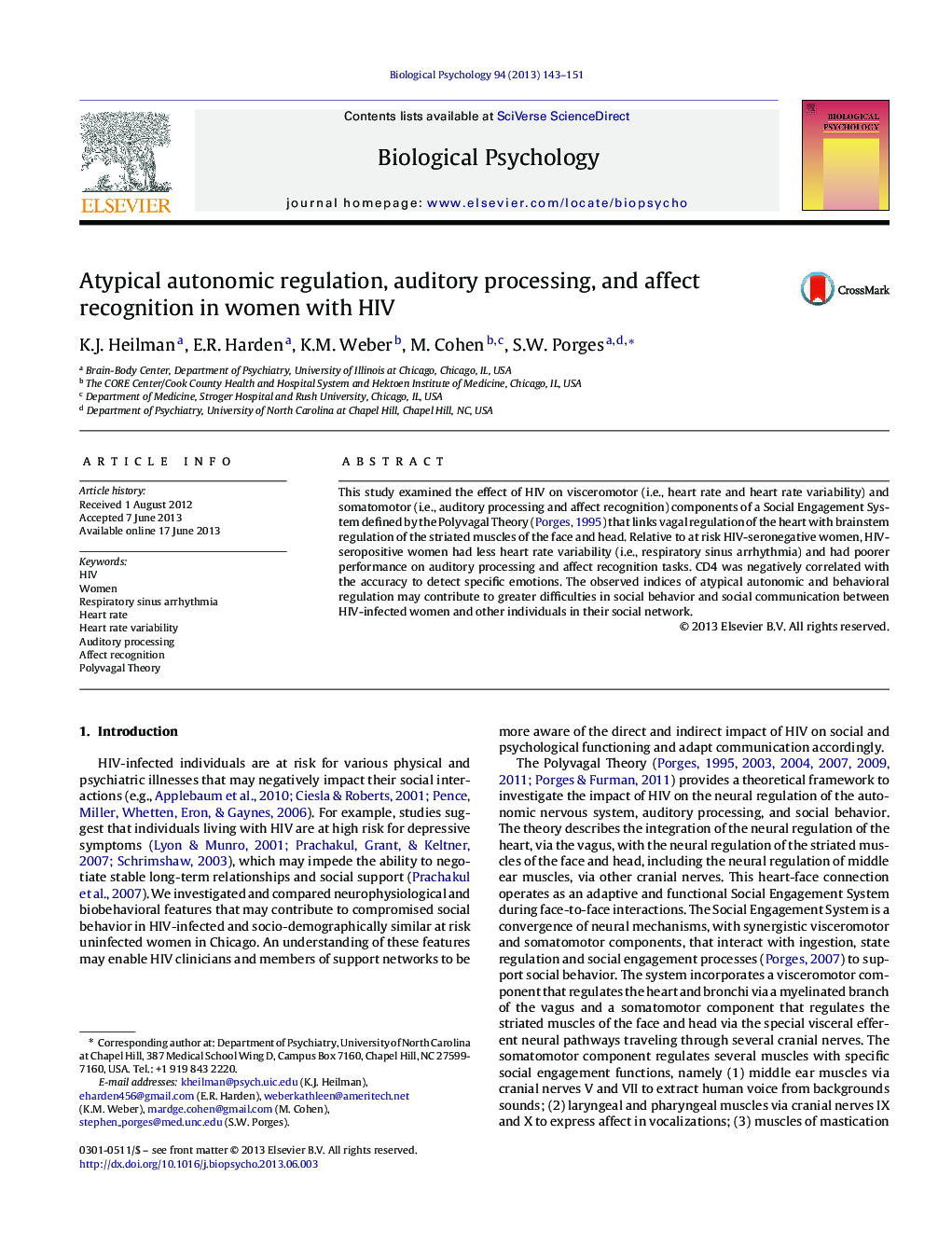| Article ID | Journal | Published Year | Pages | File Type |
|---|---|---|---|---|
| 10454214 | Biological Psychology | 2013 | 9 Pages |
Abstract
This study examined the effect of HIV on visceromotor (i.e., heart rate and heart rate variability) and somatomotor (i.e., auditory processing and affect recognition) components of a Social Engagement System defined by the Polyvagal Theory (Porges, 1995) that links vagal regulation of the heart with brainstem regulation of the striated muscles of the face and head. Relative to at risk HIV-seronegative women, HIV-seropositive women had less heart rate variability (i.e., respiratory sinus arrhythmia) and had poorer performance on auditory processing and affect recognition tasks. CD4 was negatively correlated with the accuracy to detect specific emotions. The observed indices of atypical autonomic and behavioral regulation may contribute to greater difficulties in social behavior and social communication between HIV-infected women and other individuals in their social network.
Keywords
Related Topics
Life Sciences
Neuroscience
Behavioral Neuroscience
Authors
K.J. Heilman, E.R. Harden, K.M. Weber, M. Cohen, S.W. Porges,
